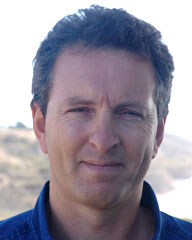Why Fundamental Seamanship and Basic Navigation Methods Still Matter
As onboard systems become more complex and automated it is important to identify what fundamental seamanship and basic navigation methods still matter, and how to enable users to learn then be motivated to retain these core skills. Automotive and marine leisure sectors have adopted GPS as a standard feature on many cars and boats. Devices such as the iPhone or iPad can be loaded with ‘navigation’ apps. In the modern bridge or open boat most crew members have a GPS linked telephone in their pocket which can identify where they are on the planet. However, there are distinct differences between knowing where you are in real time, to actually navigating and passage planning.
When the marine sector moved from paper charts to digital charting, fundamental challenges included too much complexity plus a lack of uniform menus, commands and controls across different navigation systems. Commercial objectives may drive innovation, but the danger of ‘feature creep’ can be adding MAXIMUM functions to an electronic device for no reason. The presentation considers why on a dark and stormy night, or at high speeds, the design and usability objective should be a navigation system that delivers the MINIMUM amount of relevant and clearly presented information.
There is now a strong link between GPS and communication as the digitally generated location may be more accurate than human error interpreting a position, or confusion from spoken words and numbers in a voice only VHF distress call. A vessel in distress wants other vessels in range to come to their assistance ASAP as they will often be first on the scene. Are digital solutions a viable replacement for distress flares, VHF radio and traditional signaling devices?
John Haynes AFNI FRINA - Workshop Lead / Managing Director, Shock Mitigation

John is an Associate Fellow of The Nautical Institute, Fellow of RINA, Commercial Yachtmaster Ocean and Advanced Powerboat Instructor. Subject matter expertise includes 30 years professional sector training, consultancy and strategic product development. He has worked with over 100 organisations including military, SAR, police, commercial operators, designers, OEM equipment manufacturers and boat builders.
He has chaired a broad range of maritime conferences and workshops. Technical papers and specialist articles on future requirements and new technology for international publications include Ship & Boat International (RINA), Defence IQ, Maritime Reporter, Marine Link, Marine News, Maritime Journal, Seaways, Maritime Pilot Journal, Powerboat & RIB, Yachting Matters (Superyacht), Ship & Offshore.
He is founder of the RIB & High Speed Craft Directory which brings together specialist craft, equipment and knowledge for professional maritime operators in the sub IMO / sub 24m sector worldwide. At Seawork 2016 he was voted Maritime Professional of the Year.










